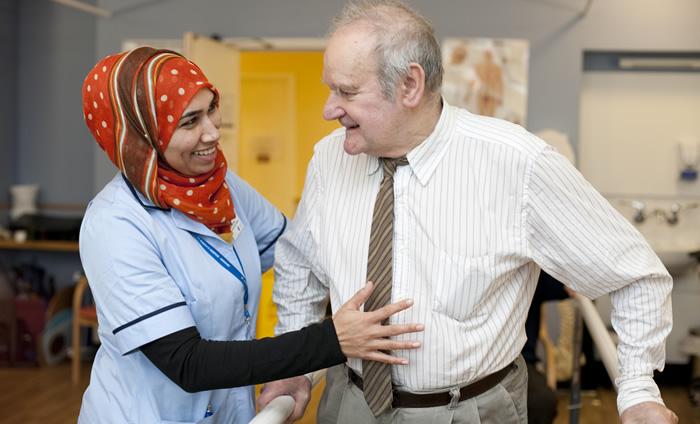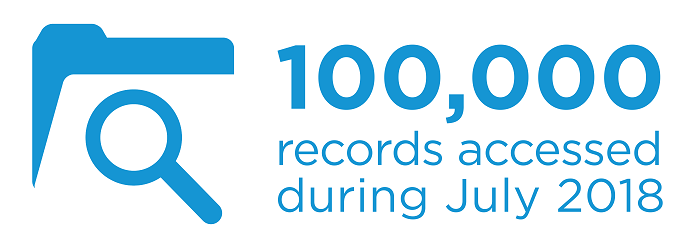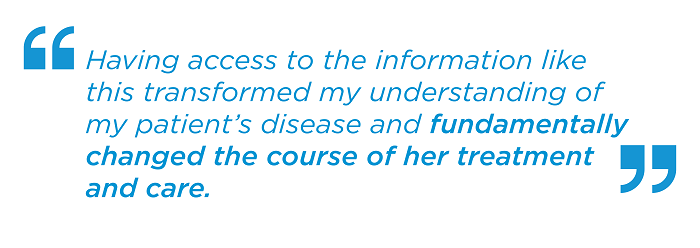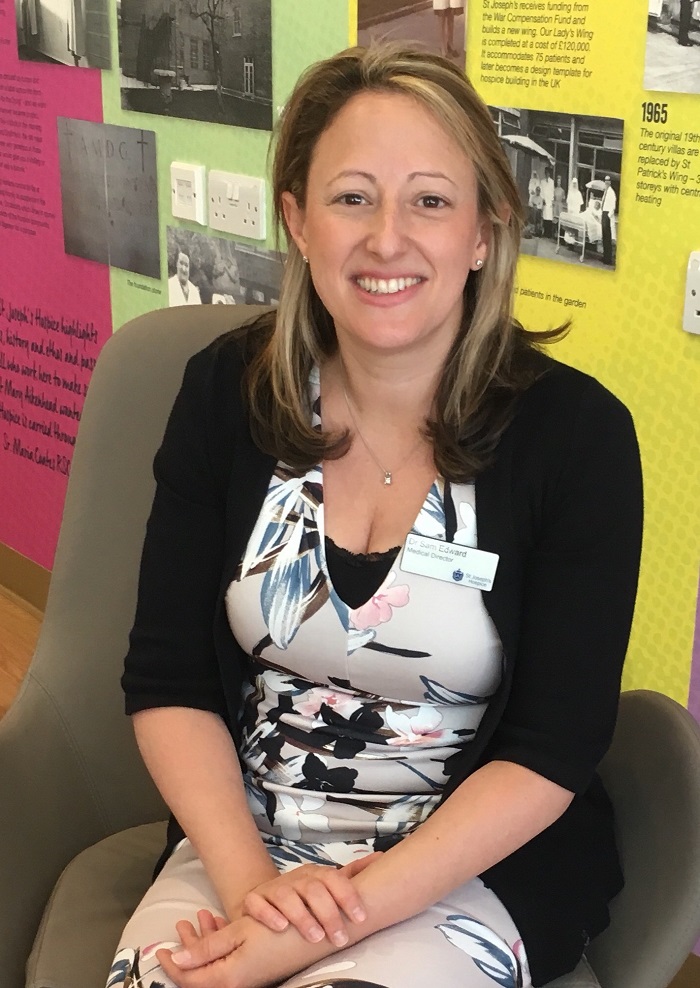Improving hospice access to shared care records
By Sam Edward, medical director, St Joseph’s Hospice in Hackney, East London

There is no doubt about it – providing excellent patient care requires our care teams to have access to the most up-to-date information available.
Located in East London, St Joseph’s Hospice boasts a very long history of specialist palliative care. Among the biggest hospices in London with a large catchment area, St Joseph’s takes referrals from many different sources – be that a GP, hospital or community healthcare professional, or the patient or family themselves.
Our patients are extremely complex, and often move around in ‘the system’, receiving care from a number of organisations simultaneously. It is necessary to gather information from across their care journey so that we may understand their needs and offer the most appropriate services. As a voluntary sector organisation delivering services alongside the NHS, it is often challenging to obtain the relevant information for use at the point of need.
The importance of speedy referrals
When we receive a referral – and during the course of delivering care – we can spend a lot of time chasing around for discharge and clinical letters, blood results and scans, as well as gaining consent and requesting other information – this can be a lengthy process and requires a lot of administration. We persist because the information we actually get about the patient is often quite piecemeal, and it’s not unusual to find that a single report can change the treatment plan or dramatically alter a pathway of care.
In palliative care, time is of the essence. Often people access our services during times of crisis, either needing urgent advice, community services, or admission to our inpatient unit – any time of day or night. Our patients are transferred to our care from their home, hospital or care home with weeks, days, or sometimes just hours left to live. We need to make them comfortable as quickly as possible, so it’s vital we can swiftly get access to up-to-date information to guide their care and safely control their symptoms. This can be a vital factor in achieving a ‘good death’.
Improving information sharing
We looked at how we could improve our access to, and sharing of, our patients’ information. With the support of the IT Enabler Board in Hackney and our input, we gained access to the electronic East London Patient Record (eLPR) in July 2017. eLPR is a growing partnership of 12 East London health and care organisations, sharing information via Cerner’s Health Information Exchange (HIE).
The eLPR provides clinicians with a view of patient information held by other local health and social care providers. The record sharing is increasingly being used. Over 100,000 records records were accessed in July 2018, and our use at St Joseph’s is increasingly becoming a normal part of the way we work to give our team access digital information.

As far as we know, we were the first hospice to achieve this connectivity to view the shared care record across such a wide range of different organisations.
We have also worked hard to facilitate the joining of Coordinate My Care (CMC) into the eLPR – to ensure patients’ personalised urgent care plan is available 24/7 to all those who care for them, including London Ambulance and out-of-hours providers.
Smarter care makes a real difference
Access to appropriate patient information undoubtedly improves the care we are able to provide, and we’ve had many examples of how it has enabled better care, and the patient experience, across our services, from our community, inpatient and outpatients.
We are certainly running more efficiently where we are able to access information, reducing the amount of paperwork, phone calls and faxes. This obviously helps our staff to focus on looking after patients and improving the quality and effectiveness of the care we can provide. We’ve saved many hours by not having to look for records – time that we can give to our patients who don’t have hours to waste.
As a community palliative care consultant, I can see the real impact that this has on the experience of care for patients and our care teams. With several services and patients having complex needs – including neurological, oncology, and end-of-life care – it is essential that we can keep track of their progress, treatment, symptoms, care plan and the outcome in order to deliver the excellence that we pride ourselves on.
Consent is another huge area of benefit. Previously, we would need to gain consent to access every individual’s record on each occasion that we accessed it. Now, as we’re part of the direct care team, supported by our data sharing agreements,2 we can now immediately use it when we get a referral, rather than taking up GP and administration time, and delaying access to care.

Transforming the end-of-life care experience
I recently had a patient with late-stage lung cancer who we were looking after at home. After self-reporting pain and onset of headaches, our community services arranged a brain scan to help us determine the optimal management.
Some weeks after the scan request, I received a call from the patient’s daughter asking if I had the results, of which I hadn’t been notified or sent. She herself asked me if we could access the results through the eLPR, having previously discussed this with her. With her consent, I put down the phone and accessed her mother’s record. It was there – immediately, I could see that the scan results indicated no spread of her disease to her brain. She would often say it was “amazing that you can access that and have results in real time”.
Having access to the information like this transformed my understanding of my patient’s disease and fundamentally changed the course of her treatment and care. It meant that we could manage her symptoms, admitting her to our inpatient unit where she subsequently died. She avoided any A&E or having to contact her oncologists and, ultimately, she died in her preferred place of care.

Providing caregivers with more time to give care
Like a lot of organisations, we’re on a digital journey and really benefiting from the work going on in East London to enable interoperability, connect disparate systems and care providers to give the right people access to patient records, at the appropriate time.
Most importantly, this allows us to spend more time with our patients and provide the best possible care – which is, after all, what we’re here for.

Sam Edward, medical director
St Joseph’s Hospice in Hackney, East London
References:
1Data supplied by the East London Health & Care Partnership, Sept 2018
2http://www.towerhamletsccg.nhs.uk/aboutus/fair-processing-in-east-london.htm
